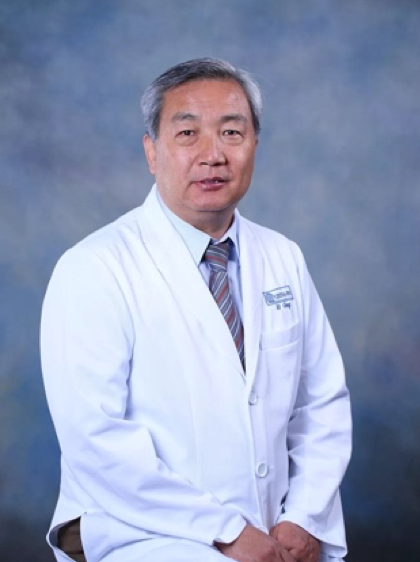1. Brief Introduction
An astrocytoma is a type of brain tumor. Brain tumors happen when normal cells in the brain change into abnormal cells and grow out of control. Brain tumors can be named after the type of cell they look like. Astrocytomas are named after a type of cells called "astrocytes."
There are different kinds of astrocytomas. Some astrocytomas grow slowly, and others grow much more quickly. Fast-growing astrocytomas are a form of brain cancer. A slow-growing astrocytoma can sometimes change into a fast-growing one.
As an astrocytoma grows, it can spread into healthy parts of the brain. It can also cause brain swelling. Both these things can cause symptoms.
2. Symptoms
◆ Headaches that might get worse at night and even wake you up–Sometimes, a headache from an astrocytoma can get worse when you bend over or change positions. Some people have a dull, constant headache.
◆ Seizures: A person who has a seizure might stiffen up, have jerking movements of the arms and legs, pass out, or lose muscle control.
◆ Memory problems or trouble thinking clearly
◆ Weakness or numbness in the arms or legs
◆ Vision changes, such as double vision or a loss of vision
◆ Problems talking to other people, such as trouble finding the right word for something
◆ Personality changes
3. Examinations
The doctor will do an exam and order imaging tests. These can include an MRI, a CT scan, or other imaging tests. Imaging tests create pictures of your brain that can show astrocytomas or other abnormal growths. Your doctor might also do a test called a "biopsy." During a biopsy, the doctor takes a small sample of tissue from the brain. Another doctor looks at the sample under a microscope to see if an astrocytoma is present. If the doctor does surgery on the astrocytoma, they will do a biopsy on a sample of the tissue that is taken out. Either way, a biopsy can tell doctors more about the astrocytoma, including whether it is likely to spread or come back.
4. Treatment Options
Surgery – During surgery, doctors try to remove as much of the astrocytoma as possible. Surgery can sometimes cure a type of astrocytoma called "pilocytic astrocytoma." Many other astrocytomas cannot be cured with surgery, but surgery might reduce symptoms and help people live longer. On the other hand, surgery can also cause more symptoms or problems. This is because doing surgery can hurt healthy parts of the brain.
◆ Radiation therapy: Radiation kills cancer cells. Doctors might give radiation therapy after surgery, or when surgery is not possible.
◆ Chemotherapy: Chemotherapy is the medical term for medicines that kill cancer cells or stop them from growing. Doctors sometimes give these medicines with radiation therapy or if an astrocytoma comes back after treatment.
◆ Watchful waiting: If an astrocytoma is small and does not cause many symptoms, doctors might wait to see if it grows or spreads. The doctor can give medicine to control symptoms, such as seizures.
5. After Treatment
After treatment, you will have regular checkups to see if the astrocytoma is coming back or spreading. These checkups will usually include imaging tests of the brain.
You should watch for the symptoms listed above, and any other symptoms you had before the doctor found the astrocytoma. Having symptoms could mean the astrocytoma has come back. Tell your doctor or nurse about any symptoms you have.
You can find professional doctors and experts about this disease here for your further consultation and treatment.














Any use of this site constitutes your agreement to the Terms and Conditions and Privacy Policy linked below.
A single copy of these materials may be reprinted for noncommercial personal use only. "China-INI," "chinaini.org" are trademarks of China International Neuroscience Institute.
© 2008-2021 China International Neuroscience Institute (China-INI). All rights reserved.